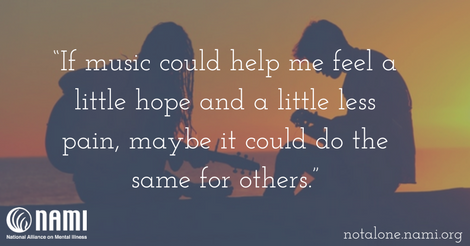May 09, 2017
By Kathryn Rose Wood
If you or someone you know is experiencing a mental health, suicide or substance use crisis or emotional distress, reach out 24/7 to the 988 Suicide and Crisis Lifeline (formerly known as the National Suicide Prevention Lifeline) by dialing or texting 988 or using chat services at 988lifeline.org to connect to a trained crisis counselor. You can also get crisis text support via the Crisis Text Line by texting NAMI to 741741.

On March 26, 2015, my 19-year-old brother died by suicide. His death seemed to come out of nowhere, and it left my family in an understandable state of shock. In trying to process Preston’s death, my emotions were wide-ranging and profound: anger, denial, sadness along with confusion, guilt, helplessness and so many other emotions I hadn’t experienced in this intense way before.
Despite these feelings, I “held it together well” according to my closest companions—a statement meant to be complimentary. I continued being productive, active in my work and creative communities, attempting to maintain lively social relationships. The more I did this, the more I felt a sense of pride for pushing through. And maybe, most importantly, the more I could ignore the chaos of my piercing, traumatic emotions.
A few months after Preston’s death, I flew home to be with family and share a sacred space of grief that only we could understand. Sitting on the plane heading homeward, I felt overwhelming relief. On the flight, I was anonymous, unknown. I could cry as much as I needed without fielding conversation about Preston, my family or myself, not ever having to answer the fateful question: “Are you okay?”
And as much as this experience offered relief, it was also the first time I realized something within me was very, very wrong. The dam wouldn’t hold much longer; unbeknownst to my conscious self, I was breaking.
I’d been working as a music therapist for several years when Preston passed away. I’d seen my clients use music to help them process traumatic events—it brought control to how memories and triggers affected them. I saw how music created healthy communication techniques where there weren’t any. Considering my music therapy experiences, I decided to write music as an expressive outlet for my grief and feelings of post-traumatic stress disorder and suicidal depression.
Writing my song, “Big Steel Wings,” was the first time I admitted on paper to the universe that I was drowning. That whatever sense of safety and control I had over my body, my emotions, my mind was failing quickly, and I wasn’t sure how I was going to get better. I turned to songwriting to navigate the murky, deep waters of my depression and grief, where there was no such thing as a “wrong” lyric or chord combination. When all I felt was numb, rhythms and chords helped me feel something again. When words weren’t working, I could sing.
Just listening to music or experiencing it live has helped me through some of my greatest struggles in life—but this time, I am certain music saved my life. Because when I finally admitted to myself that I wasn’t okay, writing music gave me the confidence that someone, somewhere, felt exactly as I did. That it was okay to not be okay, but it was also important to search for ways to bring light to my darkness.
Shortly after writing “Big Steel Wings,” I began to seek help from sources outside of myself. It was writing that song that made me realize I couldn’t “fix” myself alone. I sought out therapy, grief support, spiritual counseling and healthy peer systems. I threw myself into the abundant music community I came up with in New Orleans and forced myself to start playing live again, after a too-long hiatus.
As cathartic as music was for me to write, I wanted to ensure I was sharing my songs with others for their healing. If music could help me feel a little hope and a little less pain, maybe it could do the same for others. That is the power of music, isn’t it?
We’re always accepting submissions to the NAMI Blog! We feature the latest research, stories of recovery, ways to end stigma and strategies for living well with mental illness. Most importantly: We feature your voices.
LEARN MORENAMI HelpLine is available M-F, 10 a.m. – 10 p.m. ET. Call 800-950-6264,
text “NAMI” to 62640, or chat online. In a crisis, call or text 988 (24/7).